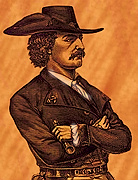|
Safety Biscuits posted:Authors shouldn't be "noble" any more than nurses should be. That your comparison is nurses is telling. Right about now they're being talked of as "heroes" risking their lives, not for money, but to care for people. This goes for any number of professions where the person is said to have a responsibility to the profession and its standards, and vocations where the calling is the activity. When you have authors saying things like, "I couldn't 'not-write,'" and, "Everyday I have to write something," you end up in a situation where the act is the important element, more valued than 'simply' being paid for it. When you swing that around and you have people coming at it where the results of the writing is responsible for furthering humanity, you have a similar concern where no one person should be valued more than the benefit to people. (Potentially, at least. Should the railways be nationalised (again) is a big question in the UK. And you can follow a similar line through arts funding all the way to book publication.) This isn't a question for authors, as I said, more a question for anything in a society that says an individual 'owns' human goods. Atrocious Joe posted:It's obvious though that the text of books aren't commodities, because they aren't interchangeable. You could then argue that a book about two people falling in love, or a woman destroying a city is in no way a 'human development' but the space created for it has to made to be a part of humanity. The time and energy given to make it 'an event' says that its something considered by people and necessarily aids them, but it's a creation or fabrication. Maybe that's the answer? You're not paying the author for their work but the publisher (and every intermediary)(in addition) for creating the focus on one particular fiction/thought. You haven't directly interacted with 'a' particular author's vision, but with 'a publishers' ability to create a space for it in the world. But then that's paying for others to make you think, and it's not any particular author. Any one of a number of authors would necessarily do.
|
|
|
|

|
| # ? Apr 16, 2024 19:40 |
|
Mrenda posted:That your comparison is nurses is telling. Right about now they're being talked of as "heroes" risking their lives, not for money, but to care for people. This goes for any number of professions where the person is said to have a responsibility to the profession and its standards, and vocations where the calling is the activity. As the nurses themselves have been (entirely correctly) pointing out, the hero talk is hollow platitudes. Actually honoring their efforts would mean a lot less applause and a lot more pay raises because it is in fact a job done for money.
|
|
|
|
Crimpolioni posted:As the nurses themselves have been (entirely correctly) pointing out, the hero talk is hollow platitudes. Actually honoring their efforts would mean a lot less applause and a lot more pay raises because it is in fact a job done for money. My point is that it's both, and the questions it raises isn't specifically for nurses, or authors, it's about what's valued by society and how it's valued. Nurses still went to work despite their lack of remuneration, authors still write despite most earning sweet gently caress all. You can say all you want, "We're in it for the money," but that's plainly not true. There's more to it, and that's being exploited. It's the nature of how it's exploited, across every field, that's the issue.
|
|
|
|
Mrenda posted:When you have authors saying things like, "I couldn't 'not-write,'" and, "Everyday I have to write something," you end up in a situation where the act is the important element, more valued than 'simply' being paid for it. When you swing that around and you have people coming at it where the results of the writing is responsible for furthering humanity, you have a similar concern where no one person should be valued more than the benefit to people. (Potentially, at least. Should the railways be nationalised (again) is a big question in the UK. And you can follow a similar line through arts funding all the way to book publication.) I don't think that this romantic way of looking at the problems of paying authors is useful; few works further humanity, many don't even try, and distinguishing between two classes is pointless. I also think it's great propaganda for the exploitative class and irrelevant to authors themselves, many of whom are deeply interested in their earnings; they entered the marketplace of their own will, after all, rather than giving their work away. Lest I appear to be only interested in the financial rewards, I'm not; I also believe that literature can, sometimes, in small degrees, further humanity, and that only a blockhead writes for the money; but I don't see the application here. PS of course they should be renationalised; even an honest capitalist would have to admit that a railway line is an effective monopoly. Mrenda posted:My point is that it's both, and the questions it raises isn't specifically for nurses, or authors, it's about what's valued by society and how it's valued. Nurses still went to work despite their lack of remuneration, authors still write despite most earning sweet gently caress all. You can say all you want, "We're in it for the money," but that's plainly not true. There's more to it, and that's being exploited. It's the nature of how it's exploited, across every field, that's the issue. It's being exploited by the capitalist class, not by publishers (considered as separate from the conglomerate that owns them). Destroying the Net Book Agreement was a disaster, I think, and suicidal for Dillons. But how can you bring it back?
|
|
|
|
Safety Biscuits posted:publishers (considered as separate from the conglomerate that owns them). Trying to understand what this means. Can you give an example?
|
|
|
|
Mrenda posted:My point is that it's both, and the questions it raises isn't specifically for nurses, or authors, it's about what's valued by society and how it's valued. Nurses still went to work despite their lack of remuneration, authors still write despite most earning sweet gently caress all. You can say all you want, "We're in it for the money," but that's plainly not true. There's more to it, and that's being exploited. It's the nature of how it's exploited, across every field, that's the issue. People getting to do something they'd do anyway because they like it isn't exploitation because they don't get paid what they'd like to get paid. Exploitation isn't some emotional thing, it's using differential access to the means of production to extract more profit from a worker's labor than is strictly necessary to maintain productive capacity. If you pay someone ten bucks for their labor, turn around and sell the product for 20, reinvest 5, and keep the other 5 for yourself, that's exploitation whether or not they enjoy the work or feel called to do it. There's a hidden assumption in your statement that society should value authorship more than it does, and I'm not sure I can get behind that. There are two reasons authors don't get paid very much -- one is that they're being squeezed by institutions and corporations that own the means to produce their books, but the other is, perhaps, that books aren't worth very much to anyone except people like us that got infected with bibliomania when we were kids. I can make a case for the value of specific books, sure, but not a case for the value of "books" or "authorship" as such. The great majority of books aren't read almost at all, not even by people that buy them or own them, so much so that Nassim Nicholas Taleb coined the term "antilibrary" to reflect the existence of unread books in all the libraries in the world. I think we need to consider the possibility that books and authorship are overvalued because of their role in capitalist culture.
|
|
|
|
cda posted:There's a hidden assumption in your statement that society should value authorship more than it does, and I'm not sure I can get behind that. There are two reasons authors don't get paid very much -- one is that they're being squeezed by institutions and corporations that own the means to produce their books, but the other is, perhaps, that books aren't worth very much to anyone except people like us that got infected with bibliomania when we were kids. I can make a case for the value of specific books, sure, but not a case for the value of "books" or "authorship" as such. The great majority of books aren't read almost at all, not even by people that buy them or own them, so much so that Nassim Nicholas Taleb coined the term "antilibrary" to reflect the existence of unread books in all the libraries in the world. I think we need to consider the possibility that books and authorship are overvalued because of their role in capitalist culture. I think that goes back to the root of my question; the difference between the financial remuneration for writing (one form of value) and more notional forms of value. And what that means for authors who want to drive fast cars and drink champagne, and authors who want to be part of a cultural conversation. Do the two necessarily coincide? Sometimes yes, many times, no. Should they coincide? Which is a question answered in part by a lack of money for many authors and on the other hand money allowing particular authors to be part of "the culture." Even the idea of what "the culture" is could be considered entirely notional. Getting reviewed in the right newspapers and magazines, being not-read but-talked-about by the right people, influencing academic reading lists, being remembered in forty years time (if you're still alive.) Finance, in the ability to stick around long enough, plays into that. It plays into getting the book in the right people's hands, who'll get it into the right people's hands. Having an auction where your rights go for high six figure sums sometimes plays a part. But is any of this purely necessary? And would an author, presuming they had a small flat and a steady, but small, income be satisfied by affecting dominant thought, or must there be a further reward? Then there's questions of whether this "culture" actually has an effect at all. Or is it purely self-serving? And if it is self-serving, does it serve a "correct" situation/group? Does it influence anything beyond those people? Maybe it's a foolhardy hope that you can alter the way a society looks at something (although authors have done so) so actually saying, "Give me the money!" is the right course of action. Which goes back to the idea that the two ambitions (money and influence) can't be separated. If you get one the other necessarily comes, or the right to ask for it/demand it comes. At the base I feel like a satisfaction of a "want" is at its core. "I want to influence the world with my writing" is a personal desire, and not one founded on money. "I want people to be entertained by my stories." "I want to be rich, and writing is the most obvious way for me to do this" doesn't make much sense. While, "I want to be happy (including surviving) doing what I love (writing)" isn't actually about writing(or not purely about writing), at least not to me.
|
|
|
|
Do science fiction authors mandate that kiddy porn should be in every book they publish?A human heart posted:Given the number of sci fi writers who 'accidentally' put this sort of thing in their books, don't you think there's a chance that the publishers might like having it in there because it sells, or might even mandate having it in the books. I brought up that I think sci-fi publishers should start policing garbage sex stuff. A human heart proposes the intriguing idea that Science Fiction publishers actually mandate that child sex appears in their books.
|
|
|
|
I spent some time thinking about it and unfortunately I think I agree with AHH, I'm a huge sci-fi fan and it's kind of crazy that out of 5 years of reading these books, I have nearly a dozen different authors who I am not longer willing to read because they write horrifying sex stuff. It is seriously hosed up and I don't understand why it continues to get published. @General Battuta, and anyone else who has an inside view of publishers, how does this poo poo keep getting published?
|
|
|
|
TheAardvark posted:how does this poo poo keep getting published? I feel like you are so close to a breakthrough here and I am just waiting for it happen
|
|
|
|
Mel Mudkiper posted:I feel like you are so close to a breakthrough here and I am just waiting for it happen mel we completely agree on basically everything i just happen to give people the benefit of the doubt first i want to believe that i am wrong
|
|
|
|
mel do you really want to find out that we completely agree on everything? because... we do.
|
|
|
|
I haven’t read any sci fi with cp in it, what the holy gently caress are you reading
|
|
|
|
Hedrigall posted:I haven’t read any sci fi with cp in it, what the holy gently caress are you reading the last 2 sci-fi novels I have read have had 1) a sudden revelation that the 2 women I was reading about have sex were actually 14 years old (The Praxis) 2) a protagonist who banged every single woman he met, while simultaneously being in emotional relationships with different women in serious, life threatening situations. (Hamilton) There's no way to write it right, it's loving garbage. Sci-fi authors consistently put heroes in sexual relationships that are 'more important' than the women they swear them selves to. It's pure poo poo. Publishers need to stop letting these garbage authors publish poo poo where young women are trreated like slaves. It's completely hosed up.
|
|
|
|
i loving love sci-fi and i read it for escapism so it's just completely horrifying to me that it's a genre that for some reason allows 14 year olds to become sex objects. i loving hate it
|
|
|
|
TheAardvark posted:i loving love sci-fi and i read it for escapism so it's just completely horrifying to me that it's a genre that for some reason allows 14 year olds to become sex objects. i loving hate it i can not accept this at all. i am going to let them down here. i will leave, please do not shoot here, let them leave
|
|
|
|
Mel Mudkiper posted:I feel like you are so close to a breakthrough here and I am just waiting for it happen mel I can't quote you. what kinda noob disables PMs? AARD VARKMAN fucked around with this message at 03:01 on Jun 17, 2020 |
|
|
|
TheAardvark posted:mel I can't quote you. what kinda noob disables PMs?
|
|
|
|
Sham bam bamina! posted:Mel doesn't have Platinum. DO NOT loving implicate SHAWN
|
|
|
|
cda posted:Trying to understand what this means. Can you give an example? I mean that the editor who offers a writer a contract doesn't mean to exploit them, but the CEOs of the company that owns the company that owns the publisher do, so the editor is working within a structure that ends up exploiting the author anyway. cda posted:There are two reasons authors don't get paid very much -- one is that they're being squeezed by institutions and corporations that own the means to produce their books, but the other is, perhaps, that books aren't worth very much to anyone except people like us that got infected with bibliomania when we were kids. I can make a case for the value of specific books, sure, but not a case for the value of "books" or "authorship" as such. Just to jump off here, not argue with you: there are theoretical ways to make artists' financial lives easier. I mentioned the Net Book Agreement upthread; you could also change income tax laws so that income from art gets a tax break, or you're allowed to use a rolling average of your income for tax purposes.
|
|
|
|
TheAardvark posted:2) a protagonist who banged every single woman he met, while simultaneously being in emotional relationships with different women in serious, life threatening situations. (Hamilton) drat this musical sounds crazy
|
|
|
TheAardvark posted:the last 2 sci-fi novels I have read have had I think this is mostly due to a legacy of acceptance of that kind of thing in the industry tracing back to Heinlein, Piers Anthony, etc. FWIW I *think* -- I could be wrong, but I *think* -- a new author who tried to get that kind of content published today as a first novel probably would not succeed. But there's been a sea change on that kind of thing in, like, the past five or ten years only. (see: the whole 2014 Sad Puppies controversy). It looks like The Praxis was published in 2002, which is twenty years ago now. Back then Piers Anthony was a big name and a big seller. He isn't any more, largely because everyone went "whao, this is hosed up."
|
|
|
|
|
TheAardvark posted:Do science fiction authors mandate that kiddy porn should be in every book they publish? I just said that publishers might want to have titillating sex stuff in their books because it sells, and maybe sometimes they might even ask the author to put it in there. Isn't that why things like the gor books or piers anthony used to be popular? you were saying that the publishers should remove it, but if it keeps showing up it seems like they must know it's there and not object to it, so maybe it's there intentionally. I didn't say that the sci fi thread approves of it or thinks it's good either, as you were claiming earlier.
|
|
|
|
TheAardvark posted:2) a protagonist who banged every single woman he met, while simultaneously being in emotional relationships with different women in serious, life threatening situations. (Hamilton) Isn't this basically every novel ever written, and entirely uncontroversial
|
|
|
|
That's not a very good example, but Peter F. Hamilton is exactly the kind of creep Aardvark's talking about.Wikipedia posted:Common themes in his books are sexually precocious teenagers, politics, religion, and armed conflict. Wikipedia posted:This was his least well received book critically, perhaps because it was Hamilton's first attempt at an in-depth character study or perhaps because much of the book was taken up with descriptions of sex which did not allow many of the characters (the women in particular) to be developed.[citation needed] Peter F. Hamilton posted:Thérèse was tall for thirteen, skinny, with breasts that had been pushed into maturity by a course of tailored growth hormones. Long raven hair, brown eyes, and a pretty, juvenile face with just the right amount of cuteness; everybody’s girl next door. She was wearing black leather shorts to show off her tight little arse, and her breasts were almost falling out of a scarlet halter top. Her pose was indolent, chewing at her gum, one hand on her hip. Peter F. Hamilton posted:"This girl has run up a medical bill that a hypochondriac millionaire would envy." Peter F. Hamilton posted:When she was seventeen she had a month-long affaire with Aulie, who was forty-four, which made it doomed from the start, which made it so romantic. She enjoyed her time with Aulie unashamedly, as much for the mild censure and gossip it generated among her friends and family as the new styles of euphoria she experienced under his knowledgeable tuition. Now he was someone who really knew how to exploit free fall. Peter F. Hamilton posted:Teenage Edenist sexuality was one of the most talked about and envied legends among their Adamist counterparts. Edenists didn’t need to worry about disease, not with their immunology systems; and affinity ensured that there were no problems of jealousy, or even possessive domination. Honest lust was nothing to be ashamed of, it was a natural aspect of teenage hormones on the boil, and there was also ample room for genuine one-to-one attraction. So given that even trainee captains only had five hours of practical engineering and technology lessons each day, and by their mid-teens Edenists needed at most six hours’ sleep per night, the rest of the time was spent pursuing orgasmic release in a manner which would have impressed even the Romans. Peter F. Hamilton posted:In return for acquiescence Rubra taught him how to use the affinity bond with the habitat. How to access the sensitive cells to see what was going on, how he could call on vast amounts of processing power, the tremendous amount of stored data that was available. Peter F. Hamilton posted:The day after he went to Mars, Nigel woke up in bed with his wives Nuala and Astrid. Both of them were biologically in their mid-thirties, though chronologically more than a century old. They were what he tended to think of as the mother comfort personalities of his harem. He sought them out when he wanted an untroubled sleep; and last night he’d really needed one. It had been a bad week; dealing with the innumerable problems spinning out from the Lost23 refugees on top of the high politics of the War Cabinet. He’d thought Mars would be a distraction from the problems he had to deal with in the office. Typical mid-life-crisis response, get out from behind the desk and do something practical; but there had been far too many old memories lurking amid that desolate frozen landscape to ambush his emotions. The broken ancient spaceplane had kindled a totally unexpected pang of guilt. When they finally returned from that abandoned planet his mood had turned bleak. Sham bam bamina! fucked around with this message at 02:51 on Dec 31, 2021 |
|
|
|
I read a lot of fantasy and I feel like the creepy sex stuff has been steadily decreasing over time. Martin is probably the worst I've read, what with the age Danerys has to marry.
|
|
|
TheAardvark posted:i loving love sci-fi and i read it for escapism so it's just completely horrifying to me that it's a genre that for some reason allows 14 year olds to become sex objects. do you think there might be a connection between "escapism" and "pedophilia" for the target audience (and the authors) of these novels do you think its overwhelming prevalence is explicable if there isn't
|
|
|
|
|
chernobyl kinsman posted:do you think there might be a connection between "escapism" and "pedophilia" for the target audience (and the authors) of these novels I am trying to keep my NEGATIVE AND INFLAMMATORY comments to a minimum in this thread but it does seem weird that people are confused about why a genre that has mostly appealed to socially maladjusted white men for half a century might have a prevalence towards weird sex stuff.
|
|
|
|
Mel Mudkiper posted:I am trying to keep my NEGATIVE AND INFLAMMATORY comments to a minimum in this thread but it does seem weird that people are confused about why a genre that has mostly appealed to socially maladjusted white men for half a century might have a prevalence towards weird sex stuff. I think Sturgeon's law applies. There's weird sex stuff everywhere.
|
|
|
cda posted:I think Sturgeon's law applies. There's weird sex stuff everywhere. i think people who primarily read genre fiction really overestimate how much weird sex stuff outside of genre fiction and fail to understand that sex stuff in """literary fiction""" is generally not meant to get you hard in the way that those peter hamilton scenes are
|
|
|
|
|
chernobyl kinsman posted:i think people who primarily read genre fiction really overestimate how much weird sex stuff outside of genre fiction and fail to understand that sex stuff in """literary fiction""" is generally not meant to get you hard in the way that those peter hamilton scenes are I dunno, but the conversation was specifically about sci fi, not about "genre fiction" overall.
|
|
|
cda posted:I dunno, but the conversation was specifically about sci fi, not about "genre fiction" overall. well okay then chernobyl kinsman posted:i think people who primarily read scifi really overestimate how much weird sex stuff outside of scifi and fail to understand that sex stuff in """literary fiction""" is generally not meant to get you hard in the way that those peter hamilton scenes are
|
|
|
|
|
I think the sex stuff in Tropic of Cancer, Ulysses, Lady Chatterly's Lover, Vox, Ragtime, The Unbearable Lightness of Being, The God of Small Things, Written on the Body, the Bible etc. are meant to get readers hard but they don't work on me because I am too powerful for even the greatest writers.
|
|
|
|
I like the sex in Elfriede Jelinek books because it reads like descriptions of a corpse being dissected, just really unpleasant.
|
|
|
|
A human heart posted:I like the sex in Elfriede Jelinek books because it reads like descriptions of a corpse being dissected, just really unpleasant. I read The Pianist a while back and thought that the protagonist's ideas about love, sex and BDSM were so stupid and selfcontradictory that the book basically stopped making sense by the time it got to the handjob scene
|
|
|
|
I like the part in A Personal Matter where Bird wanting his hosed-up kid to die is as pleasurably vile as being stroked in the right spot on his scrotum. Also all the actual sex.
|
|
|
|

|
| # ? Apr 16, 2024 19:40 |
|
Ras Het posted:I read The Pianist a while back and thought that the protagonist's ideas about love, sex and BDSM were so stupid and selfcontradictory that the book basically stopped making sense by the time it got to the handjob scene I feel like it's been too long since I read the book to say much about it but the protagonist is so sexually stunted that I think it makes some sense that her ideas are self contradictory.
|
|
|


















